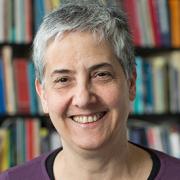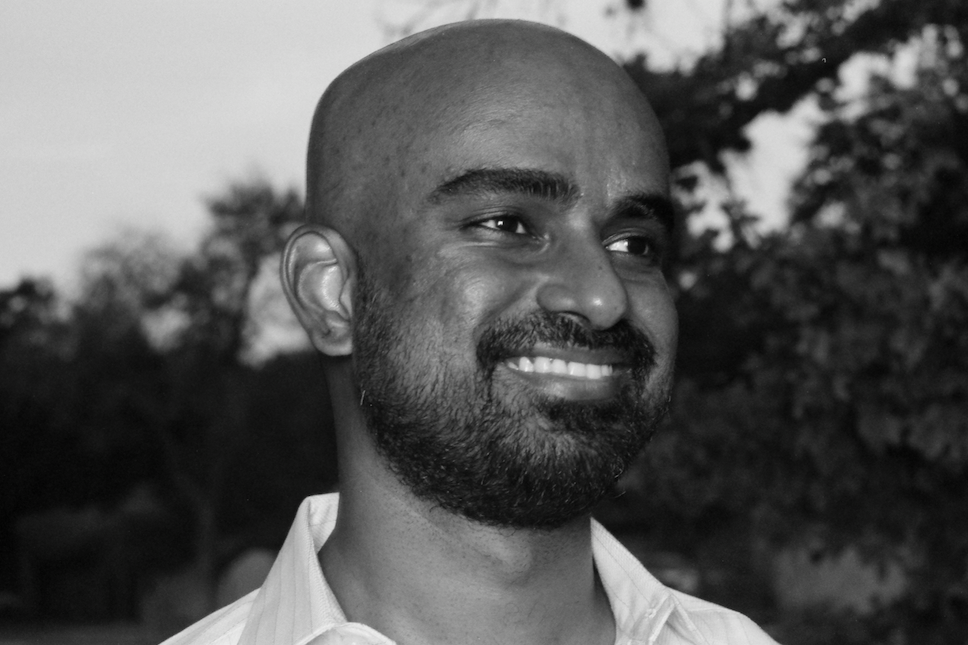About
The Cornell Phonetics Lab is a group of students and faculty who are curious about speech. We study patterns in speech — in both movement and sound. We do a variety research — experiments, fieldwork, and corpus studies. We test theories and build models of the mechanisms that create patterns. Learn more about our Research. See below for information on our events and our facilities.

Upcoming Events

18th September 2024 12:20 PM
PhonDAWG - Phonetics Lab Data Analysis Working Group
Nielson will present his analysis of his Khmer language data & how the Cambodian diaspora has affected Khmer phonetics.
Location: B11 Morrill Hall, 159 Central Avenue, Morrill Hall, Ithaca, NY 14853-4701, USA
19th September 2024 08:00 AM
Cornell Conference on Southeast Asian Language Instruction
Cornell, the only institution offering regular multilevel instruction in all six of the major Southeast Asian languages – Burmese, Indonesian, Khmer, Filipino (Tagalog), Thai and Vietnamese – will host a conference on the teaching of these languages on Sept. 19-21.
“Cornell is bucking national trends and expanding our language programs in various ways, especially in support of less commonly taught languages,” said Abby Cohn, conference co-organizer, professor of linguistics in the College of Arts and Sciences, and member of the Southeast Asia Program (SEAP).
“All the Southeast Asian languages are considered ‘less commonly taught,’ and this conference really highlights Cornell’s leadership in the field in less commonly taught languages.”
The conference, titled “Southeast Asian Language Instruction: Sustainability through Collaboration,” is being hosted by the Southeast Asia Program, a part of the Mario Einaudi Center for International Studies, in collaboration with the Department of Asian Studies and the Language Resource Center (A&S).
Cornell is a Title VI National Resource Center (NRC) in Southeast Asian studies and works collaboratively with other Title VI centers across the U.S. to sustain and promote instruction in these languages to train future scholars and diplomats. The conference is funded partly through Title VI NRC funds.
More information here: https://as.cornell.edu/news/language-sustainability-through-collaboration-conference-cornell
Follow this link for the conference program.
Location: Southeast Asian Language Instruction: Sustainability through Collaboration
20th September 2024 11:15 AM
C.Psyd Speaker Venkata Govindarajan to speak on Modeling Intergroup bias in online sports comments
This week in Computational Psycholinguistic Discussions (C.Psyd), we're excited to host an invited speaker Dr. Venkata Govindarajan, who will talk on modeling Intergroup bias in online sports comments
Abstract:
Social bias in language is generally studied by identifying undesirable language use towards a specific demographic group, but we can enrich our understanding of communication by re-framing bias as differences in behavior situated in social relationships — specifically, the intergroup relationship between the speaker and target reference of an utterance. In this talk, I will describe my work modeling this intergroup bias as a tagging task on referential expressions in English sports comments from forums dedicated to fandom NFL teams.
We curate a unique dataset of over 6 million game-time comments from opposing perspectives, each comment grounded in a non-linguistic description of the events that precipitated these comments (live win probabilities). For large-scale analysis of intergroup language variation, we use LLMs for automated tagging, and discover that some LLMs perform best when prompted with linguistic descriptions of the win probability at the time of the comment, rather than numerical probabilities. Further, large-scale tagging of comments using LLMs uncovers linear variations in the form of referent across win probabilities that distinguish in-group and out-group utterances.
Bio:Dr. Venkta Govindarajan is an Assistant Professor of Computer Science at Ithaca College. He is a Computational Linguist interested in various topics in computational pragmatics and social science, especially how social dynamics influence meaning in communication. He completed in Ph.D in Computational Linguistics at The University of Texas Austin in May 2024, advised by Prof. Jessy Li and Prof. David Beaver.
Location: B07 Morrill Hall, 159 Central Avenue, Morrill Hall, Ithaca, NY 14853-4701, USA
20th September 2024 12:20 PM
Phonetics Lab Meeting
Chloe will give a practice talk on non-uniformity in morphophonology across frameworks.
Location: B11 Morrill Hall, 159 Central Avenue, Morrill Hall, Ithaca, NY 14853-4701, USA
Facilities
The Cornell Phonetics Laboratory (CPL) provides an integrated environment for the experimental study of speech and language, including its production, perception, and acquisition.
Located in Morrill Hall, the laboratory consists of six adjacent rooms and covers about 1,600 square feet. Its facilities include a variety of hardware and software for analyzing and editing speech, for running experiments, for synthesizing speech, and for developing and testing phonetic, phonological, and psycholinguistic models.
Web-Based Phonetics and Phonology Experiments with LabVanced
The Phonetics Lab licenses the LabVanced software for designing and conducting web-based experiments.
Labvanced has particular value for phonetics and phonology experiments because of its:
- *Flexible audio/video recording capabilities and online eye-tracking.
- *Presentation of any kind of stimuli, including audio and video
- *Highly accurate response time measurement
- *Researchers can interactively build experiments with LabVanced's graphical task builder, without having to write any code.
Students and Faculty are currently using LabVanced to design web experiments involving eye-tracking, audio recording, and perception studies.
Subjects are recruited via several online systems:
- * Prolific and Amazon Mechanical Turk - subjects for web-based experiments.
- * Sona Systems - Cornell subjects for for LabVanced experiments conducted in the Phonetics Lab's Sound Booth

Computing Resources
The Phonetics Lab maintains two Linux servers that are located in the Rhodes Hall server farm:
- Lingual - This Ubuntu Linux web server hosts the Phonetics Lab Drupal websites, along with a number of event and faculty/grad student HTML/CSS websites.
- Uvular - This Ubuntu Linux dual-processor, 24-core, two GPU server is the computational workhorse for the Phonetics lab, and is primarily used for deep-learning projects.
In addition to the Phonetics Lab servers, students can request access to additional computing resources of the Computational Linguistics lab:
- *Badjak - a Linux GPU-based compute server with eight NVIDIA GeForce RTX 2080Ti GPUs
- *Compute server #2 - a Linux GPU-based compute server with eight NVIDIA A5000 GPUs
- *Oelek - a Linux NFS storage server that supports Badjak.
These servers, in turn, are nodes in the G2 Computing Cluster, which currently consists of 195 servers (82 CPU-only servers and 113 GPU servers) consisting of ~7400 CPU cores and 698 GPUs.
The G2 Cluster uses the SLURM Workload Manager for submitting batch jobs that can run on any available server or GPU on any cluster node.
Articulate Instruments - Micro Speech Research Ultrasound System
We use this Articulate Instruments Micro Speech Research Ultrasound System to investigate how fine-grained variation in speech articulation connects to phonological structure.
The ultrasound system is portable and non-invasive, making it ideal for collecting articulatory data in the field.

BIOPAC MP-160 System
The Sound Booth Laboratory has a BIOPAC MP-160 system for physiological data collection. This system supports two BIOPAC Respiratory Effort Transducers and their associated interface modules.

Language Corpora
- The Cornell Linguistics Department has more than 915 language corpora from the Linguistic Data Consortium (LDC), consisting of high-quality text, audio, and video corpora in more than 60 languages. In addition, we receive three to four new language corpora per month under an LDC license maintained by the Cornell Library.
- This Linguistic Department web page lists all our holdings, as well as our licensed non-LDC corpora.
- These and other corpora are available to Cornell students, staff, faculty, post-docs, and visiting scholars for research in the broad area of "natural language processing", which of course includes all ongoing Phonetics Lab research activities.
- This Confluence wiki page - only available to Cornell faculty & students - outlines the corpora access procedures for faculty supervised research.

Speech Aerodynamics
Studies of the aerodynamics of speech production are conducted with our Glottal Enterprises oral and nasal airflow and pressure transducers.

Electroglottography
We use a Glottal Enterprises EG-2 electroglottograph for noninvasive measurement of vocal fold vibration.

Real-time vocal tract MRI
Our lab is part of the Cornell Speech Imaging Group (SIG), a cross-disciplinary team of researchers using real-time magnetic resonance imaging to study the dynamics of speech articulation.

Articulatory movement tracking
We use the Northern Digital Inc. Wave motion-capture system to study speech articulatory patterns and motor control.
Sound Booth
Our isolated sound recording booth serves a range of purposes--from basic recording to perceptual, psycholinguistic, and ultrasonic experimentation.
We also have the necessary software and audio interfaces to perform low latency real-time auditory feedback experiments via MATLAB and Audapter.

